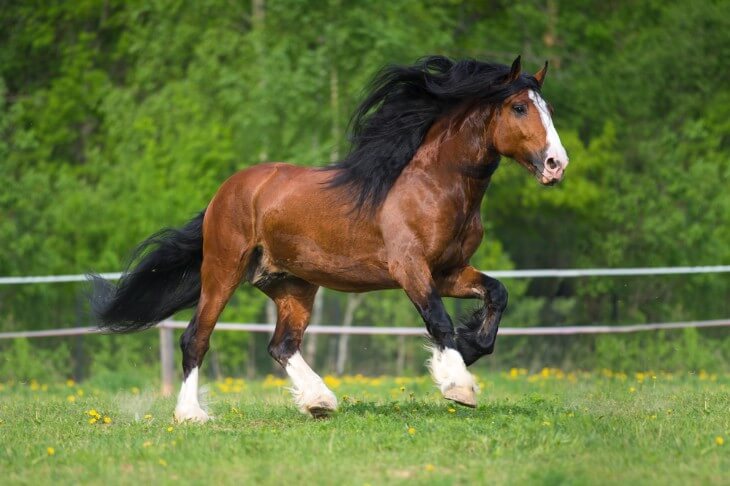Introduction
Have you ever wondered how much does a racing horse weigh? In the electrifying world of horse racing, where speed, stamina, and strategy collide, the weight a horse carries becomes a pivotal element in the quest for victory. Racing across tracks worldwide, horses ranging from sleek Thoroughbreds to nimble Arabians and powerful Quarter Horses gallop under the burden of carefully assigned weights.
Handicappers meticulously analyze past performances, breed traits, and jockey weights to create an equitable battleground, ensuring every contender, regardless of pedigree or prowess, stands a fighting chance. Jockeys, too, become part of this weighty equation, sculpting their bodies to meet stringent limits. As the gates swing open and hooves thunder down the tracks, the significance of every pound carried becomes palpable, shaping the narrative of each race and adding a layer of intrigue to the heart-pounding world of horse racing.
How Much Does a Racing Horse Weigh?
So, how much does a racing horse weigh? The weight of a racing horse can vary widely depending on its age, breed, and the type of racing it is bred for. Thoroughbred horses, which are commonly used for racing, typically weigh between 900 and 1,200 pounds (410 to 545 kilograms). However, it's important to note that individual horses can fall outside of this range based on factors such as their build, height, and overall conditioning. Different types of racing, such as quarter horse racing or endurance racing, may involve horses of different breeds and weights.
Let’s take a more detailed look:
- Thoroughbred Horses: Thoroughbreds are the most common breed used in horse racing. On average, adult Thoroughbred racehorses weigh between 900 and 1,200 pounds (410 to 545 kilograms). However, some exceptional individuals can weigh slightly more or less. Thoroughbreds are known for their slender build, which contributes to their speed on the track.
- Age and Development: Young Thoroughbred horses, especially those in training, might weigh less than fully matured adults. Yearlings, which are one-year-old Thoroughbreds, typically weigh between 800 and 1,000 pounds (365 to 455 kilograms). As they grow older and undergo training, their weight increases.
- Gender Differences: Male racing horses (stallions and geldings) tend to be heavier and more muscular than females (mares). Mares are generally lighter, which can give them a slight advantage in certain races, especially when carrying equal weights.
- Conditioning and Fitness: The weight of a racing horse can also vary based on its fitness level and conditioning. Trainers carefully monitor the weight of their horses to ensure they are in optimal racing condition. Proper diet, exercise, and regular veterinary care are essential to maintain a horse's weight and overall health.
- Weight in Racing: In horse racing, jockeys are required to carry specific weights during races. To ensure fairness, horses carry different weights based on their age, gender, and racing experience. The assigned weight includes the jockey's equipment (saddle, bridle, etc.). Handicappers assign these weights to create a more level playing field, allowing horses of different abilities to compete on equal terms.
It's important to note that these weights are generalizations, and individual horses can deviate from these averages. Additionally, the information provided here pertains to Thoroughbreds, which are the most prominent breed in horse racing. Other types of horse racing, such as harness racing or quarter horse racing, involve different breeds with varying weight ranges.

The Impact of Weight in Horse Racing
Now that we know how much a racing horse weighs, let’s take a look at its importance on the outcome of races. Simply put, weight plays a significant role in horse racing, and it can impact the outcome of races in several ways. It impacts horse racing by levelling the playing field, balancing advantages among competitors, affecting speed and performance, and influencing the strategies of jockeys and trainers. The careful consideration of weight in handicapping is essential to maintain fair and competitive horse racing events.
- Equalizing Competition: Handicapping is a system used in horse racing to equalize the chances of all horses in a race. Horses are assigned specific weights to carry based on factors such as age, gender, past performance, and the conditions of the race. This process is aimed at creating a level playing field, allowing horses of different abilities to compete fairly. Handicapping ensures that a highly successful horse carries more weight in subsequent races, making it more challenging for them to win and maintain a competitive balance.
- Balancing Advantages: Adding weight to a horse can balance out advantages. For example, if a horse is particularly talented or has been winning many races, it may be assigned a heavier weight to make the race more competitive. Conversely, less successful horses might carry lighter weights to give them a better chance at winning.
- Impact on Speed: Carrying additional weight can slow a horse down. The more weight a horse carries, the more effort it needs to exert to maintain its speed. Therefore, the weight a horse carries can influence its speed during the race. Lighter horses may have an advantage in terms of speed and stamina, especially in longer races.
- Jockey's Role: Jockeys are an integral part of the weight equation. They need to maintain their weight within specific limits to ensure the combined weight of the horse and the jockey adhere to the race requirements. Jockeys often have strict weight management routines to meet these requirements and may need to reduce or maintain their weight to secure rides in specific races.
- Impact on Health and Performance: Excessive weight can strain a horse's body, potentially leading to injuries or decreased performance. Trainers carefully monitor the weight of their horses to ensure they are in optimal physical condition. Overloading a horse with excessive weight could lead to fatigue, reduced speed, and overall diminished performance.
What About the Other Breeds?
Arabian Horses:
- Average Weight: Arabians typically weigh between 800 to 1,000 pounds (360 to 450 kilograms). They are known for their compact and muscular build, making them sturdy and agile.
- Weight in Handicapping: Similar to Thoroughbred racing, Arabian horse racing employs handicapping methods where horses are assigned specific weights to carry. These weights are determined based on the horse's age, gender, past performance, and the conditions of the race.
- Lighter Build: Arabian horses are generally lighter and more compact compared to Thoroughbreds, which influences the weight they can carry. Due to their smaller size and lighter build, their assigned weights might be lighter than those of Thoroughbreds, ensuring fair competition.
Quarter Horses:
- Average Weight: Quarter Horses are slightly heavier than Arabians. They usually weigh between 950 to 1,200 pounds (430 to 545 kilograms). Quarter Horses are well-muscled and known for their speed in short-distance sprints.
- Weight and Sprint Races: Quarter Horse racing often involves short-distance sprints. While weight is a consideration, these races are typically run over shorter distances (such as a quarter of a mile), and the impact of weight on speed and endurance is different than in longer races. In sprint races, speed and explosive power are highly valued, and horses need to be agile and quick off the mark.
- Barrel Racing: Quarter Horses are also popular in rodeo events like barrel racing. In these events, there are no specific weight assignments for the horse, but the rider must maintain their weight within certain limits to ensure fair competition.

Horse Weight and Handicapping
Handicapping in horse racing involves assigning weights to horses to level the playing field and create fair competition. Horses are assigned weights based on their past performance, ability, and other factors. The goal is to give every horse an equal chance of winning the race.
Handicapping is a complex process that requires a deep understanding of horse racing and the ability to analyze various factors. The goal is to create competitive races that provide excitement for spectators and a fair chance for all participants.
- Assigning Weights: Handicappers, who are experts responsible for determining the weights, analyze the horses' previous performances. Horses that have performed well in previous races might be assigned higher weights to make the race more challenging for them. Less successful horses carry lighter weights, increasing their chances of winning.
- Factors Considered: Handicappers consider various factors, including a horse's recent performance, its age, gender, the distance of the race, and sometimes the track condition. For example, if a race is for older horses, younger horses might carry slightly lighter weights to balance the competition.
- Equalizing Abilities: Handicapping ensures that horses with different abilities have an equal chance of winning. By adjusting the weights carried by each horse, handicappers aim to create a competitive race where every horse has a fair opportunity to succeed.
- Weight-for-Age Scale: In many races, there is a weight-for-age scale. This scale adjusts the weight horses carry based on their age and sex. Younger horses and female horses might carry less weight compared to older, more experienced male horses. This helps in creating equitable conditions for all horses involved.
- Jockey's Role: In addition to the horse's weight, jockeys also have weight limits. Jockeys must maintain their weight within specific limits to ensure that the combined weight of the horse, tack (saddle, bridle, etc.), and jockey comply with the race requirements. Jockeys often have rigorous training and diet regimens to meet these weight limits.
Summary
Racing horses, including Thoroughbreds, Arabians, and Quarter Horses, typically weigh between 800 to 1,200 pounds (360 to 545 kilograms) depending on factors such as breed, age, gender, and build. Handicapping in horse racing involves assigning specific weights to horses based on their past performance and other factors to level the playing field and ensure fair competition. These assigned weights help equalize the abilities of horses, providing an opportunity for all competitors to win. Jockeys also play a role as they must maintain their weight within specific limits to meet race requirements. Overall, weight considerations are crucial in maintaining fairness, competitiveness, and the well-being of racing horses and jockeys.
For more information:
- An Overview of Horse Racing Handicapping System
- Horse Weights Impact in Handicap Races
- An Overview of Horse Racing Handicapping System
- Understanding Horse Racing Betting








